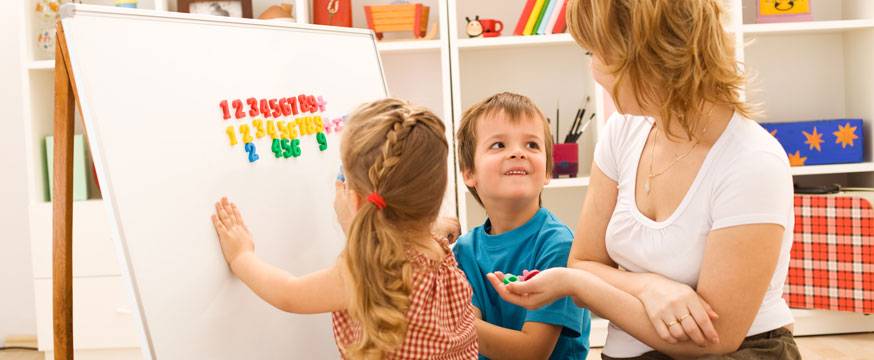
Do the math: Preschool numeracy development
Research 21 Sep 2016 3 minute readIt is important to understand the numeracy skills of preschool children so appropriate school-entry teaching and learning can occur.
Children’s experiences in the early years can establish a sound foundation for learning throughout primary schooling and beyond. A new research report, Fostering Understanding of Early Numeracy Development, published by the Australian Council for Educational Research (ACER), uses data from the Longitudinal Literacy and Numeracy Study: Transitions from Preschool to School, to highlight preschool children’s early numeracy skills.
Report author Dr Kate Reid, Research Fellow in ACER’s Education Policy and Practice program, says the skills children develop before school greatly influences their achievement in school mathematics.
‘Children are developing many numeracy concepts before they start learning mathematics formally at school, but there is significant variation in how quickly each child acquires these skills,’ Dr Reid says.
‘Our study focused on the understanding and experiences of children in the year prior to school, in order to better understand the distribution of achievement among preschoolers and children at school entry.
‘If preschool children have very different skills in mathematics, it implies that teachers will encounter a wide range of abilities even in the first year of school.’
The Longitudinal Literacy and Numeracy Study: Transitions from Preschool to School began in 2012 with 219 preschool children from 23 early learning centres around Australia.
A body of research on numeracy development suggests that interactions between children and adults – such as parents and early childhood educators – prior to school can encourage significant growth in children’s informal mathematics.
For instance, the frequency with which parents engage in direct numeracy activities with their children, such as teaching their child to count, or indirect numeracy activities, such as measuring while cooking, relates positively to preschool children’s mathematics achievement.
The report’s second author, Research Fellow Nicola Andrews, says that much more can be done in the years prior to school to encourage the development of children’s numeracy both at home and in early learning centres.
‘There are six significant areas of early numeracy skills examined in the report, including numbers and counting; sharing, number comparison and ordering; calculations; patterns; shapes; and measurement,’ Ms Andrews says.
‘The report describes the development and importance of each numeracy concept, provides information on the skills of surveyed children with each activity and highlights some everyday activities that may help to promote children’s understanding in these areas.
‘It is important that early childhood educators know more about the skills of preschool children so that they can better encourage their development.
‘It’s also necessary to understand the numeracy skills of preschool children to enable appropriate school-entry teaching and learning to occur.’
Read the full report:
Fostering Understanding of Early Numeracy Development, by Kate Reid and Nicola Andrews, is available in the ACER Research Repository.